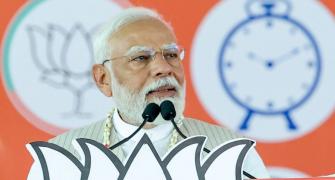The Transcend Implantable Gastric Stimulator, by Transneuronix of Mt. Arlington, New Jersey and Langenhagen, Germany, uses pulses of electricity to trick the brain into thinking the stomach is full.
The device is projected as an effective alternative to radical surgery such as the gastric bypass for helping people shed large amounts of weight, reports ABC.
'The pacemaker -- manufactured by Transneuronix -- is a battery-powered generator about the size of a pocket watch. In clinical trials, it has helped hundreds of obese patients lose weight and keep it off,' ABC said.
Bill Martin, a 53-year-old electrician, lost 85 pounds in five years after having the pacemaker implanted.
"I noticed I was able to control my eating a lot better. I was able to just stop and not overeat at all," ABC quoted Martin as saying.
According to the article, 'during the implantation surgery, doctors use a minimally invasive procedure to place the generator under the skin in the abdomen and stitch its electrodes to the stomach wall. The outpatient surgery requires general anesthesia and takes less than an hour. Once installed, the device sends a mild burst of electrical current every three seconds.'
'Researchers haven't determined exactly
"For reasons that aren't completely clear, the gastric pacemaker helps people to eat less, and therefore lose weight.There's no shock, no vibration, no sensation whatsoever, but the result is a reduced appetite. Patients say they feel full faster."
ABC said the reduced appetite, according to one theory, could stem from the electrical current that is constantly stimulating the stomach muscle and disrupting production of a critical hunger hormone.
"People who lost weight with the stomach pacemaker had lower levels of a hormone that stimulates appetite," it quoted Dr. Louis Aronne, an obesity specialist at New York Presbyterian Hospital in New York, as saying. "As a result, they were not as hungry."
Preliminary results indicate that the pacemaker helped obese patients lose an average of 17 percent of their weight, with no reported side effects.
The stomach pacemaker has already been approved for use in Europe and Canada, and the Food and Drug Administration could decide within the next two years whether it will be available in the United States, ABC said. The device and the operation to implant it cost about $15,000, and its batteries have to be replaced every five years.








